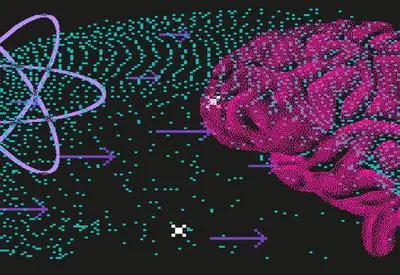Since the early days of quantum mechanics, physicists and philosophers argued that resolving the measurement problem requires an appeal to the minds of conscious observers. That is still the case today, argues Shan Gao.
Quantum mechanics is a very successful physical theory due to its accurate empirical predictions. But a key puzzle remains at its core: the measurement problem. There seems to be a conflict between what Schrödinger’s equation tells us, namely that a system described by the wave function can be in a state of superposition, instantiating apparently conflicting properties, and what experience tells us, namely that when we take a measurement of such a system, we get one, definite result, not a superposition. To use Schrödinger’s thought experiment, quantum mechanics would seem to imply that a cat can be both alive and dead at the same time, but we only ever experience cats that are either alive or dead.
There are a number of proposed solutions to the measurement problem, including what has come to be known as the hidden variables theory, which suggests that the wavefunction isn’t a full description of a system and does away with states of superposition, and the many-worlds interpretation, that suggests the superpositions are expressed across different universes, each with one definite result. But ever since the early days of quantum mechanics, physicists and philosophers have argued that the human mind is needed to resolve the measurement problem. In order to understand why that’s still the case, we need to look at the measurement problem and the proposed solutions more closely.
 SUGGESTED READING
Consciousness is irrelevant to Quantum Mechanics
By Carlo Rovelli
SUGGESTED READING
Consciousness is irrelevant to Quantum Mechanics
By Carlo Rovelli
Formalizing the measurement problem
In 1995, Tim Maudlin gave a precise formulation of the measurement problem. According to this formulation, the measurement problem originates from the incompatibility of the following three claims:
(C1) The wave function of a physical system is a complete description of the system;
(C2) the wave function always evolves in accord with a linear dynamical equation, such as the Schrödinger equation;
(C3) a measurement yields a single definite result.
There are three main approaches to solving the measurement problem thus formulated. The first approach is to deny the claim (C1) and add certain hidden variables and corresponding dynamics to explain the definite measurement results. A well-known example is the pilot-wave theory of de Broglie and Bohm, or Bohmian mechanics. The second approach is to deny the claim (C2) and revise the linear and deterministic Schrödinger equation by adding certain nonlinear and stochastic evolution terms, which describe the dynamical collapse of the wave function, to explain the definite measurement results. Such theories are called collapse theories. The third approach is to deny the claim (C3) and assume the existence of many equally real worlds to accommodate all possible results of measurements. In this way, it may also explain the definite measurement results in each world including our world. This approach is called Everett’s theory or the many-worlds interpretation of quantum mechanics.
___
When you observe that the pointer of a measuring device points to a definite position after a measurement, are you really sure that the pointer indeed points to a definite position as a matter of fact?
___
Where does the mind come into quantum mechanics?





















Join the conversation